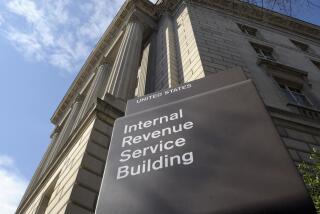Making Sense of the Tax Maze
Some years, taxpayers almost need to take a college course to keep up with changes in tax law. This is not one of those years.
But don’t throw away those highlighters and crib notes just yet. Even though taxpayers don’t have to grapple with any sweeping new tax legislation this year, previously passed laws are still taking effect, courts have made new rulings and the IRS has issued additional guidelines.
Taxpayers could find themselves tested by new, little-known restrictions on tax credits, retirement accounts and other areas of tax law.
For example, the Internal Revenue Service has cracked down on transfers between IRAs and Roth IRAs that once benefited some taxpayers.
Meanwhile, lump sum distributions from retirement plans can no longer be spread over five years, and two tax credits for foster parents have been tightened.
There’s also some good news. Popular tax breaks have been extended, and contributing to certain retirement plans is easier.
Tax brackets, standard deductions and exemptions have also been increased by a few bucks, although low inflation has preempted any dramatic changes.
Here’s a quick review of what’s new for 2000:
For Everyone
* The standard deduction rises to $4,400 for singles ($100 more than last year) and $7,350 for marrieds (a $150 increase). The value of exemptions rises $50 to $2,800.
* The IRS is no longer accepting the 1040PC computer-generated paper return because electronic filing is now widely available using home computers.
* The IRS has reduced the failure-to-pay penalty for taxpayers who have set up an installment payment plan with the agency. The usual 0.5% per month penalty is cut in half to 0.25%, for an annual interest rate of about 3%. Taxpayers who owe more than they can pay should consider filling out Form 9465, Installment Agreement Request.
* If your only investment income was capital gains distributions from a mutual fund and you don’t otherwise need to file a 1040, you may be able to use the simpler Form 1040A. For details, see Publication 550.
* You can now check a box on your tax form that allows the IRS to deal directly with your tax preparer should questions arise about your return. This can help your preparer solve simple problems more quickly.
* Credit card companies and other businesses that lend money to consumers are now required to report to the IRS when they cancel or forgive debt. The canceled or forgiven amount is typically considered taxable income to the consumer.
* Speaking of credit cards, a second company has been approved to process credit card payments from taxpayers who owe the IRS money. Both Official Payments Corp. and PhoneCharge Inc. charge convenience fees of about 2.5% of the tax payment.
For Families
* The child-tax credit and the earned-income credit are restricted for certain foster families.
In the past, foster parents could take these credits if the foster child lived with them for the entire year and the foster parents cared for the child as though he or she were their own.
Now, the child must be placed with the foster parent by an authorized placement agency, or be a brother, sister, stepbrother or stepsister, or descendant of such a relative.
* Personal tax credits, including the child-tax credit, are not reduced under alternative minimum tax rules.
People who are subject to the AMT--a parallel tax system that affects certain deductions and credits--would normally lose the ability to take full advantage of certain personal nonrefundable credits, such as the $500 child-tax credit, the adoption credit, the dependent-care credit, education credits and the credit for the elderly and disabled, among others.
Congress extended a law that preserved these credits for people subject to AMT for 2000 and 2001.
* Income limits rise for earned income credit. Low-income families with at least two qualifying children can now have incomes of as much as $31,152 and still qualify for this refundable credit. Last year the limit was $30,580.
For Retirement Savers
* Income limits rise for deductible IRA contributions. In 2000, you can take a full deduction if your adjusted gross income is under $52,000 for married filers or $32,000 for single filers. A partial deduction is available until income reaches $62,000 for married filers and $42,000 for singles. As in past years, taxpayers can deduct an IRA contribution regardless of income if they are not covered by a workplace retirement plan.
* New restrictions have been imposed on transfers between IRAs and Roth IRAs.
In past years, some taxpayers converted regular IRAs to Roth IRAs, undid the conversions in what was known as a recharacterization and then did the conversions all over again. Many who did this were hoping to take advantage of lower stock prices to reduce the amount of tax they paid, because amounts converted to Roth IRAs generally incur regular income taxes, said Jim Seidel, editor for tax information firm RIA.
The IRS is attempting to put an end to this market timing. Starting in 2000, taxpayers are not allowed to convert an IRA to a Roth IRA a second time during the same tax year or during the 30 days that follows a recharacterization.
A taxpayer who converted an IRA to a Roth IRA in 2000 and then undid the conversion would have to wait until this year to reconvert, for example. If the transfer of money from the Roth IRA back to the regular IRA was done in December, the taxpayer would have to wait 30 days to reconvert.
* Certain religious workers can qualify for Social Security. Speaking of conversions, it’s now possible for ministers, members of religious orders who don’t take a vow of poverty and Christian Science practitioners to participate in Social Security even if they previously decided to exempt themselves from the system. For details, see IRS Publication 517.
* Five-year averaging for lump-sum retirement distributions is gone. In previous years, a total pay-out from a qualified retirement plan (known as a lump-sum distribution) could be taxed as though the withdrawals had been made over five years--which usually resulted in lower tax rates.
The good news is that 10-year averaging is still available for retirement plan participants born before 1936.
For High Earners
* The itemized deduction limit is raised. Taxpayers can now have adjusted gross incomes of $128,950 before limits on certain itemized deductions take effect--up from $126,000 last year. (The limit is $64,475 for married taxpayers filing separately, up from $63,300.)
* The exemption phaseout limit is raised. Taxpayers with adjusted gross incomes over certain limits can lose some or all of the value of their exemptions. For 2000, the limit for singles is $128,950, $193,400 for marrieds filing jointly and $96,700 for marrieds filing separately.
* High earners must make bigger quarterly estimated tax payments this year to avoid stiff IRS underpayment penalties. If your income exceeds $150,000, your withholding and quarterly tax payments last year must have equaled 108.6% of your 1999 bill. This year, your payments must equal 110% of your 2000 bill.
For Students
* The maximum deduction for student loan interest increases to $2,000, from $1,500 last year.
The amount you can deduct depends on your income and how long you’ve been paying interest. You can deduct interest only if you’re within the first 60 months of repayment, and the deduction starts decreasing if your adjusted gross income reaches $60,000 for joint filers or $40,000 for single filers. You can’t take the deduction at all if your adjusted gross income exceeds $75,000 for joint filers and $55,000 for singles.
* The exclusion on employer-paid education costs, which was scheduled to end May 31, 2000, has been extended until Dec. 31, 2001. Students taking undergraduate-level courses paid for by their employers can exclude up to $5,250 in qualified expenses (tuition, books, fees and certain supplies) from their incomes in 2000 and 2001.
(BEGIN TEXT OF INFOBOX / INFOGRAPHIC)
TAXES CHANGES FOR SMALL BUSINESS
The following tax changes affect small-business owners and the self-employed:
* Business expense deduction. The so-called Section 179 expense deduction rises to $20,000 in 2000 from $19,000 the previous year. This deduction allows you to write off the full cost of qualifying business assets purchased in 2000, rather than depreciating them over several years.
* Standard mileage. The standard mileage rate has been restored to 32.5 cents per mile for business use of a car. The IRS trimmed the rate in early 1999 to 31 cents, just as gas prices began to soar.
* Retirement contributions. Business owners who contribute to both defined benefit and defined contribution plans are no longer limited to a total of $30,000 annually.
This change is a boon to older business owners who are trying to funnel as much as possible into their retirement plans. Although they are still required to use various formulas that limit their contributions according to the rules of the plan, their overall maximum contribution could be more than three times higher thanks to this change. Business owners should consult their tax advisor or defined benefit plan administrator for details.
* Cash accounting method. Small businesses with average gross receipts of less than $1 million for the last three years might qualify for the cash accounting method instead of the accrual method. The benefit: Cash accounting allows small businesses to forgo annual inventory valuations. Instead, they can write off the cost of inventories when the finished products are sold. For more details, see IRS Publication 553 (https://www.irs.gov).
* Installment sales. An unpopular tax change has been reversed. Congress repealed a law that required many businesses to pay capital gains taxes on installment sales in one lump sum. Now, as before, these businesses can opt to stretch out the tax bill. The repeal was retroactive, so businesses can report the sales as if the tax change never occurred.
*
INSIDE & ONLINE
* Tax tips, including where to get forms and advice. C3
* Advice for Social Security recipients. Cx
* New IRA regulations. Cx
* Investment loss deductions. Cx
* A comprehensive Times tax package is at http://161.35.110.226/taxes.


